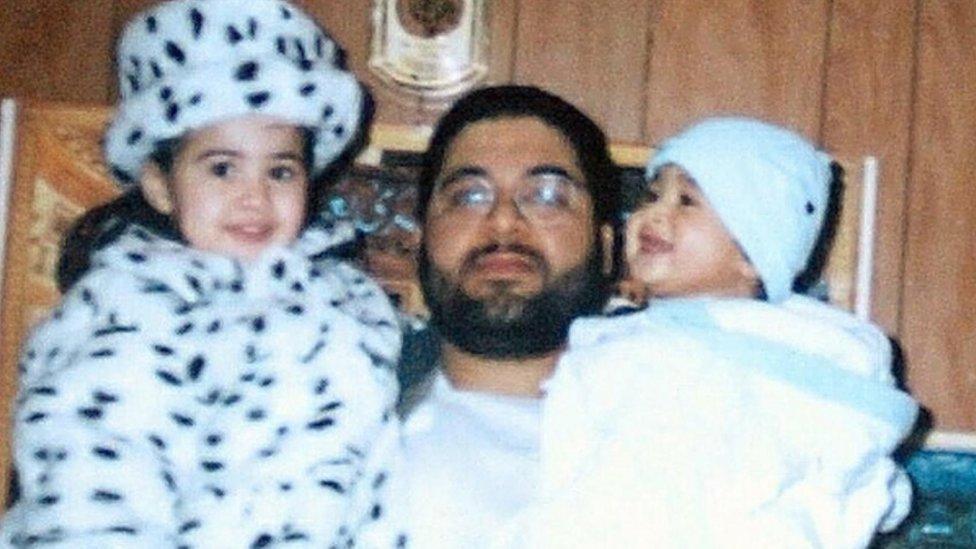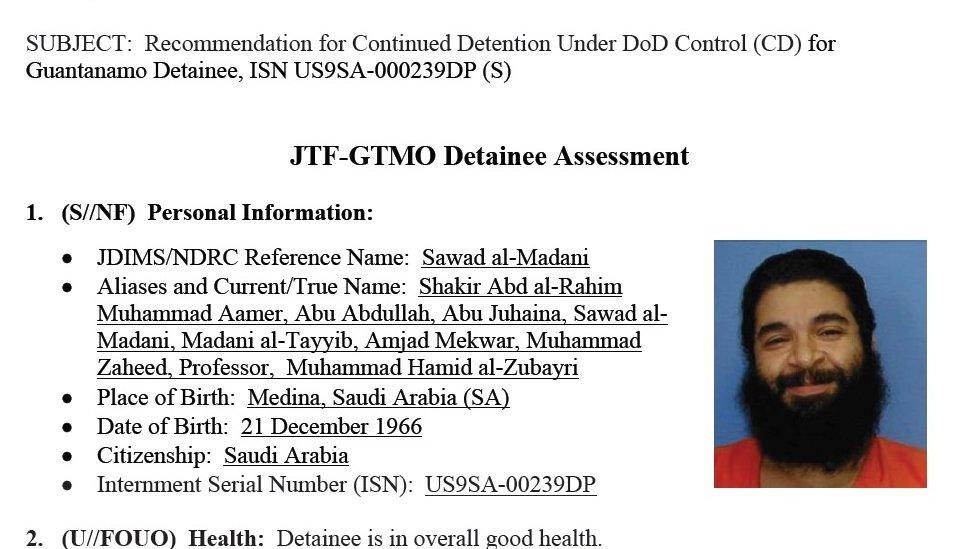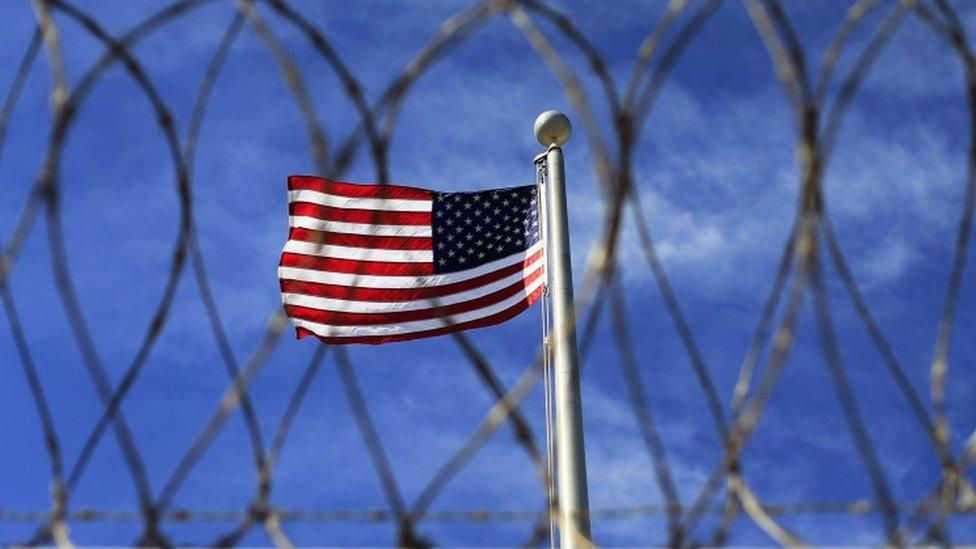Shaker Aamer: The man about to leave Guantanamo Bay
- Published

Shaker Aamer with two of his children
Shaker Aamer is the last British resident in a prison cell in Guantanamo Bay. And for the majority of that time, Detainee 239, to use his official number, has been held despite being cleared for release.
The Saudi national was born in December 1966 and settled in the UK 30 years later. Before that he had lived and studied in the United States and acted as a translator for US personnel during the first Gulf War. After coming to the UK he married his wife, Zin Siddique, and the couple have four children. He has spent more time in Guantanamo Bay than in the UK.
Soon after the 9/11 attacks on America, he was detained in Afghanistan by bounty hunters tracking down and handing over possible al-Qaeda suspects.
He was detained on the basis that he had been allegedly involved in fighting at Tora Bora - that was the al-Qaeda cave stronghold where US forces had been hunting for Osama bin Laden.
Mr Aamer denied any involvement in fighting, saying he was in Afghanistan carrying out humanitarian work.
Mr Aamer was first held by the US forces at Bagram air force base near Kabul. His lawyers say that he was forced to stay awake for nine days, denied food, doused in freezing water and made to stand on concrete in the winter for 16 hours. On one occasion, a British intelligence officer was allegedly in the room when Mr Aamer's head was slammed into a wall. That alleged incident led to a legal battle in the British courts, external to find out what the UK knew about his treatment.
Mr Aamer told his lawyers that he had made false confessions to end his torture - but the US military classified him as a threat. They recorded in secret documents that he was a "member of al-Qaeda tied to the European support network" and a "close associate" of Bin Laden himself.
The deeper intelligence assessment accused him of being part of a broad network of jihadist-minded individuals, influenced by the radical cleric Abu Qatada, that had originated in the UK in the years after the Bosnian War.

US Military file on Shaker Aamer
Camp leader
On Valentine's Day 2002, Mr Aamer was transferred to Guantanamo Bay where his lawyers say he suffered further abuse.
They say he was subjected to a form of "cell extraction" which involved the use of violence against "non-compliant" prisoners.
But he quickly became a leading figure and spokesman for other prisoners - and camp commanders negotiated with him to help end a hunger strike.
Moazzam Begg, who was held in Guantanamo during some of this period, says that the release is long overdue.
"Shaker has been subjected to almost 14 years without charge or trial in Guantanamo," he told the BBC.
"He has spent a huge amount of his time in solitary confinement. He lost more than half his body weight at several junctures during that period because of the hunger strikes. He's been force fed, with tubes forced into his nose, being strapped down to a chair, with his head and his legs also tied down."
In 2013, the US news programme 60 Minutes broadcast a special report from inside the detention centre. Shaker Aamer began shouting from his cell as the journalists filmed outside.
"Please, we are tired," he could be heard saying. "Either you leave us to die in peace or either tell the world the truth. Please, Colonel, act with us like a human being, not like slaves. You cannot walk not even half a meter without being chained."
During his incarceration, Shaker Aamer says he witnessed three deaths which, in his view, amounted to homicide. This allegation has not been proven in court and the US military has denied criminal abuses were committed at Guantanamo.

Guantanamo Bay: Shaker Aamer became influential
Case dropped
In 2007, the US authorities completely dropped any case against him when they said that he was being cleared for release. However, the jail gates didn't swing open.
The UK asked Washington to let him out to return to his family. Two years later a second US tribunal approved his release - and again nothing happened.
A succession of British foreign secretaries have raised the case with Washington, backed by parliamentarians, human rights groups and justice campaigners. Earlier this year Prime Minister David Cameron personally raised the case again with President Obama.
Why he is getting out now, and what happens to him next, is simply unclear.
Security researcher Robin Simcox of the Henry Jackson Society think tank says that Mr Aamer presents a potential threat to national security.
"The United States government believes him to be a military-trained al-Qaeda member who recruited for extremist causes and had close ties to Osama bin Laden," he says.
"He was a hugely influential figure at Guantanamo Bay known to be able to exert influence over detainees and guards alike."
The earliest Shaker Aamer can return home will be 25 October, at the end of a formal period during which the US Congress has the power to review the decision.
Assuming he is returning, on his arrival in the UK Mr Aamer will, like other Guantanamo detainees before him, be met by British security officials and, potentially, questioned. He will then be returned to his family and will be medically and psychiatrically assessed.
The news that Shaker Aamer is going to be released came after he had been held at Guantanamo for 13 years, 7 months and 11 days.
That is exactly the same age as his youngest son, Faris, born the day he arrived at the camp - his fourth child, whom he has never met.